
Vivant Grapevine
White seedless muscat grape 'produces a light crisp German-type wine'. This cultivar is reported to be hardier than Seyval and Vidal 256 but not as hardy as Ventura or Concord. It produces white wines similar to riesling.

White seedless muscat grape 'produces a light crisp German-type wine'. This cultivar is reported to be hardier than Seyval and Vidal 256 but not as hardy as Ventura or Concord. It produces white wines similar to riesling.
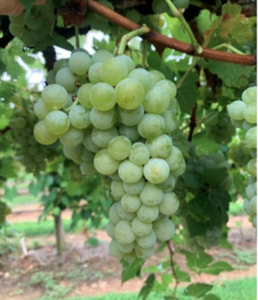
Indulgence -[Pat. PP34,850] Newly released from the University of Arkansas, this moderately vigorous, white grape with upright growth habit, produces wines with floral and fruity muscat flavors and herbal aromas. Used as a varietal wine or as a blender to enhance flavors and aromas, Indulgence ...
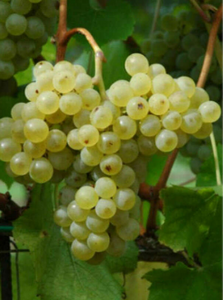
Fleurtai (Tocai Friulano x 20-3) is one of two of the mildew resistant VCR varieties that has shown 'excellent' resistance to both Downy and Powdery Mildew. Fleurai's golden-green colored berries produce a delightful, white wine with pronounced fruity and spicy aromas. Vines are vigorous and may ...
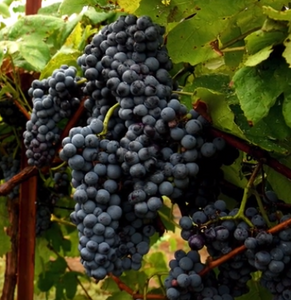
Enchantment, (A-2467) - [PP30,513] formerly known only as A2467, is a red wine grape producing a nice dry, robust red. This medium-vigor vine has a very intense color that can be used in blending for pigmentation or as it's own varietal. Enchantment has shown consistent cropping and has proven to...
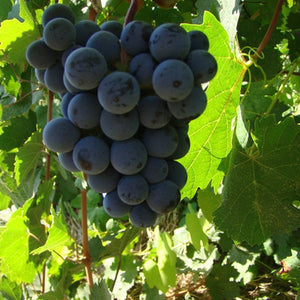
Dornfelder is considered to be the most successful red German vinifera cross with substantial plantings in the late 20th Century. The wine is notable for its depth of color, good acidity, attractive aromatics, and ability to age well.
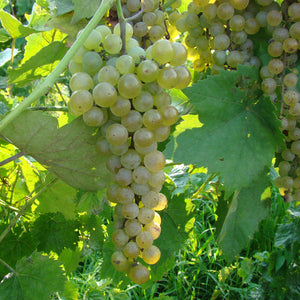
Vidal Blanc is a productive white wine grape with medium-sized berries borne on very large, compact tapering clusters. Vidal can produce a semi-dry varietal wine and is often blended with other white hybrids. Fruit has thick skin and is highly resistant to fruit rots so can be used to make late h...
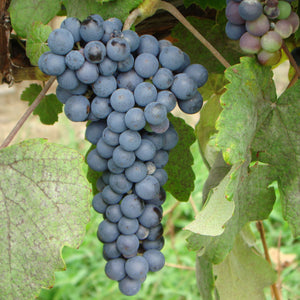
Thomcord is highly productive with large clusters of medium-sized berries, but unlike Concord, it has adherent skin. The aromatic Labrusca flavor is similar to that of Concord but mellower.
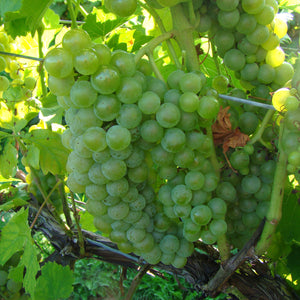
Seyval Blanc is one of the most widely planted white hybrid varieties in cooler regions of the eastern US. Vines are typically overly fruitful and require some cluster thinning.
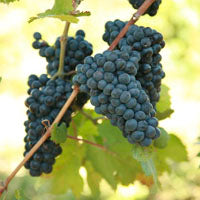
Pinot Noir is the classic red Burgundy cultivar, it ripens best under cool, dry conditions and is best suited for cool but moderate climates. Wines are lower in tannins and pigments than the other great French wine varieties, and are used for red and rosé wines, and are one component of tradition...
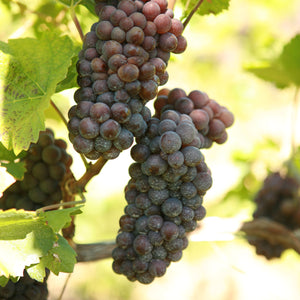
Pinot Gris is a lighter-skinned mutation of Pinot Noir that produces small, compact clusters of berries ranging in color from pink to coppery-gray, to brownish pink, even within the same cluster. Its low acidity makes this a favored variety for cooler climates with long growing seasons and is mad...
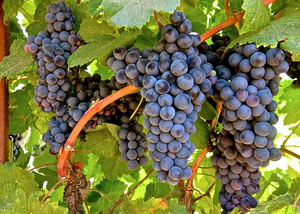
Petit Verdot is one of the classic black Bordeaux varieties. It is known for high quality where it can fully ripen, which is later than that of Cabernet Sauvignon.
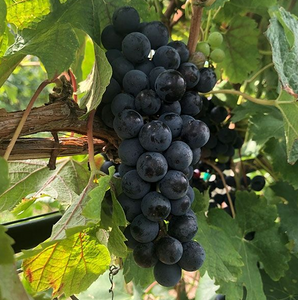
One of two red, wine varieties out of the mildew resistant VCR line up, Merlot Kanthus (Merlot x 20-3) maintains excellent wine quality resembling that of it's parent. Vines are adaptable to different trellis systems due to their high base bud fertility and semi-upright growth habit. Clusters are...
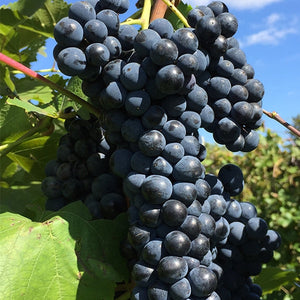
Marquette is rapidly becoming the most popular northern red grape variety. Typically maturing with high sugar content and moderate acidity, Marquette can produce complex wines with attractive ruby color and pronounced tannins, often with notes of cherry, berry, black pepper, and spice.
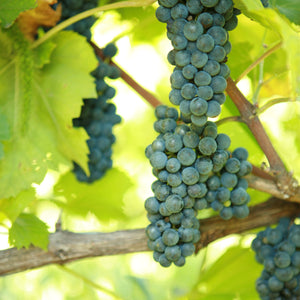
Léon Millot is a sister of Marechal Foch, earlier-ripening and typically more productive. Wines are similar to those made from Foch with distinct berry aromas and are often blended with Foch.
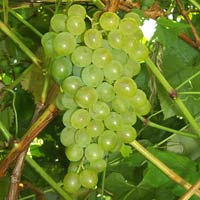
Villard Blanc produces a late-ripening white grape in large, loose, compound clusters and has good resistance to Pierce's disease. Produces an outstanding table grape, and is typically used for blending to produce more neutral white wines.
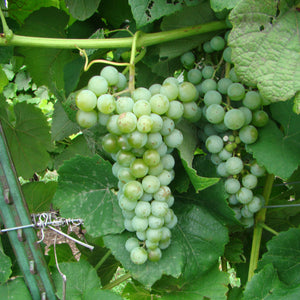
Cayuga White is one of the most productive and disease resistant varieties grown in New York and was Cornell University's first variety released specifically for winemaking. This versatile grape can be made into a semi-dry to sweet wine and is often blended with other white hybrids such as Seyval...
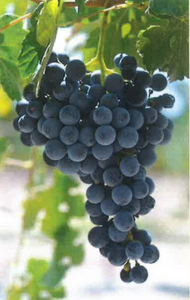
This red wine grape makes wine with characteristics of both Cabernet Sauvignon and Petite Sirah and is resistant to Pierce's Disease. This selection ripens early and the berries are relatively large and the well filled clusters are medium sized. Tasting notes include bright red fruit, tannic and ...
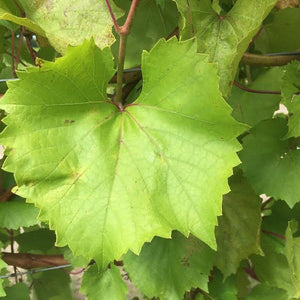
1103P rootstock provides high scion vigor and is tolerant of high alkalinity (high pH soils), high salinity (salt content), and cotton root rot (generally an issue in high pH soils). It is poor at taking up potassium from the soil and can be used to reduce wine must pH where desired.
![101-14 [FPS] 01.1 (10-CNY) Grapevine](http://doubleavineyards.com/cdn/shop/files/101-14_1_f81a0e33-5c90-430b-add1-bfd7207ecdac_300x300.jpg?v=1759065193)
Standard rootstock in Eastern US. Vigorous mostly sterile female variety with attractive leaves and shoots. Used for decorative arbors where fruit is not wanted, does well on clay soils.
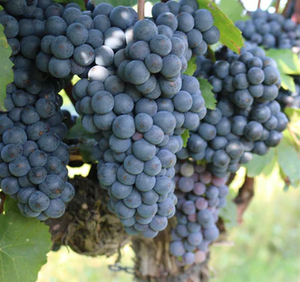
Zweigelt is widely grown in Austria where it was developed and is now the country's most popular dark-skinned grape. Zweigelt ripens earlier than Lemberger but buds out later than St. Laurent and tends to produce liberal yields.